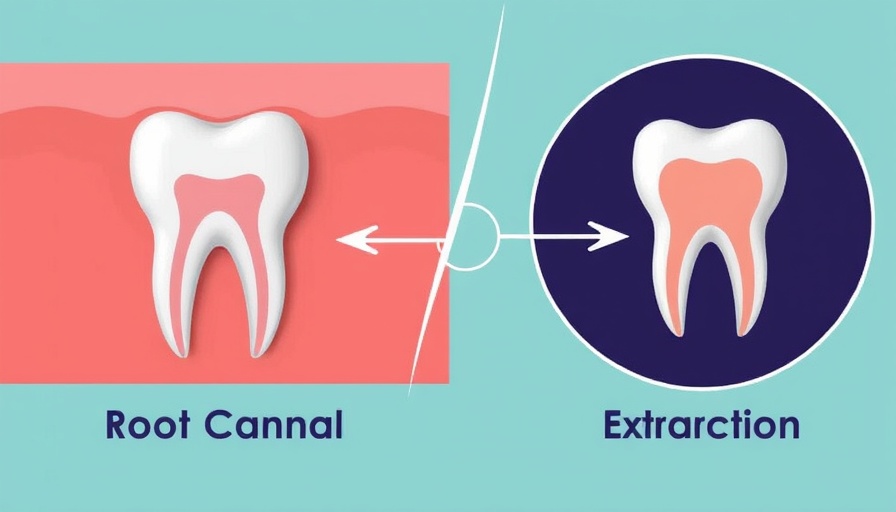
Understanding Your Options: Root Canal vs. Tooth Extraction
Making decisions about dental care can be overwhelming, especially when faced with a damaged or infected tooth. Patients often find themselves at a critical juncture, asking, "Should I save my tooth through a root canal or go for extraction?" At times, it's a challenging choice based on various factors including the severity of dental issues, your oral health, and the implications of each procedure.
The Benefits of Root Canals
A root canal aims to save a tooth that is severely damaged due to decay, infections, or trauma. This treatment involves removing the infected pulp and carefully cleaning the inside of the tooth, allowing you to keep your natural tooth intact. This can be quite valuable, as preserving natural teeth is vital for maintaining your bite and preventing misalignment of adjacent teeth.
Root canals are typically recommended in scenarios such as:
- Deep decay that has reached the tooth’s pulp
- Repeated dental procedures impacting the same tooth
- Cracked or chipped teeth
- Large fillings that compromise tooth structure
- Recent trauma
When Tooth Extraction is Necessary
Despite the benefits of saving a tooth, there are circumstances that may compel the need for extraction. Removing a tooth might be the only option when it has sustained extensive damage or is too infected to be salvaged. Tooth extraction is often indicated in cases of:
- Severe decay that destroys a significant portion of the tooth
- Advanced periodontal disease affecting tooth support
- Impacted wisdom teeth creating complications
- Teeth overcrowding before orthodontic treatments
- Fractured teeth that are beyond repair
Comparing Long-Term Implications
Choosing between a root canal and extraction comes down to weighing the long-term outcomes of each procedure. While root canals preserve your natural tooth and its roots—important for jaw health—extraction leads to tooth loss, necessitating replacements like bridges, dentures, or implants. This can lead to added costs over time and might complicate your dental health due to shifting teeth structures.
Financial Factors to Consider
From a cost perspective, root canals tend to have a higher upfront price tag than extractions. However, factoring in the cost of potential replacements after extraction can provide a clearer financial picture. Long-term expenses associated with bridges, implants, or dentures can add up, making root canal therapy potentially more economically viable in the long run.
Healing Time and Recovery
In terms of recovery, root canals generally allow patients to resume their normal routines within one day, with manageable discomfort often subsiding quickly. Extracting a tooth, however, may entail a more extended healing process, involving care for stitches and managing swelling. Knowing the recovery timelines can assist patients in planning for post-procedural care.
Potential Risks and Future Considerations
It’s essential to discuss not only immediate effects but also long-term risks with your dentist. Extraction can lead to bone loss around the extraction site, which may complicate future dental procedures and affect your appearance. In contrast, saving your tooth can contribute positively to your oral ecosystem, reducing the likelihood of requiring more invasive treatments later.
Making the Right Choice for Your Dental Health
Ultimately, the decision between a root canal and extraction should be based on a thorough examination of your specific circumstances and discussions with your dental care provider. Understanding the extensive considerations—from immediate pain relief to long-term health impacts—will empower you to choose what best suits your oral health needs. Whether you are looking for a dentist near me or special services such as emergency dentist solutions, being well-informed will lead to proactive health management.
Taking action today means preserving your smile for tomorrow. If you have questions or need guidance on dental procedures, schedule a dental appointment online or visit your local dentist for personalized care.
 Add Row
Add Row  Add
Add 




 Add Row
Add Row  Add
Add 

Write A Comment